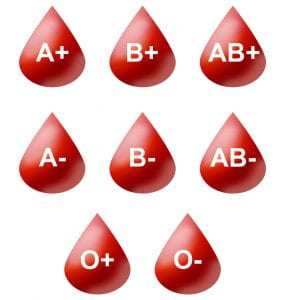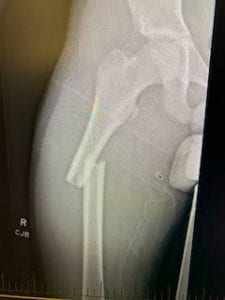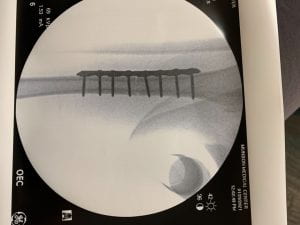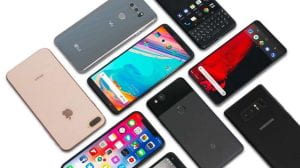Last week we have been learning about the micro-plastics all over the ocean. Through math and science, we learned about what micro-plastics are, and how they are affecting the world. The plastics that we use everyday will most likely end up in the ocean, where it takes years for it to begin to biodegrade. But, even when the plastic bags, cups, straws, etc. begin to break up, they stay in tiny pieces, which then is absorbed into the animals that eat the plastic. If you eat fish, you are consuming the toxins that the fish have absorbed earlier in their lives. Birds, fish, turtles, and other sea animals eat pieces of plastic, which fills their stomach so they feel full, which then stops them from getting the nutrients they actually need to survive. Every day 8 million pieces of plastic find their way to the ocean, which means, every day, we are killing the animals in the sea.
Roller Coasters

This first week back from break, we worked on finishing our roller coasters. The group I was in, with Michael, Gus, and Eddie, thought we had finished our roller coaster before the break, but we decided to change it before we had to present it to the second graders. We also learned about potential energy, energy that can happen, and kinetic energy, energy caused by movement, along with acceleration, speed and velocity.
On Wednesday, we showed the coasters to the second grade, which was an interesting experience. I was surprised at the questions some of them asked, some of them were questions I never would have thought of. Our roller coaster was one of the biggest, but we couldn’t get it to work consistently for the second graders. Overall, I really enjoyed the roller coasters, building, learning, and presenting, and I look forward to hover crafts in the coming weeks
Blood Types

This week, we learned about the different blood types, and which types of blood can be given if a transfusion is needed. We did and experiment to test which blood types can be given to which.
The four types of blood, type A, B, AB, and O, all can be transfused to certain blood types. If someone has type AB, they are a Universal Recipient, which means that they can receive any blood for a transfusion. However, type AB cannot give blood to anyone. If you are type O, you are a Universal Donor, which means you can give blood to every blood type. Type O blood types can only receive type O. Type A can receive type A and O, and can give to type A and AB. Type B can give to type B and AB, and can get type B and O.
Questions: Can you take antigens off of a blood cell? Can you change your blood type? Can you have too much blood?
The Biggest Canyon in the Solar System

Mars is home to two of the biggest natural phenomenons, a volcano, and from recent research, a canyon. Valles Marineris, a huge canyon found on the east side of the red planet, measures over 3,000 miles long, as long as the US from coast to coast. As a comparison, the Grand Canyon is about 277 miles long, whereas Valles Marineris is 200 miles wide. The research is fairly new, although the original discovery happened in 1972. Scientists are trying to figure out the cause of the canyon, for Mars is too hot and dry for a river to carve out this phenomenon. There are theories that Valles Marineris is the cause of volcanic action, and that landslides and ancient rivers may have helped. We are slowly learning more about this canyon, and astronauts and scientists are continuously studying pictures, although there are none from the surface yet.
Questions: Are NASA planning to have astronauts explore Valles Marineris when we land on Mars? When do space organizations plan to land on Mars? Will we ever be able to travel at light speed?
Source:
https://www.dogonews.com/2021/1/26/the-solar-systems-largest-known-canyon-is-stunning
Snapped my biggest bone.


(X-ray of break) (X-ray of screws and plate)
Last week, on Thursday, I had a terrible experience. I was skiing, and went off a jump, and when I landed I twisted my leg which snapped my femur clean in half. Instantly, I knew it was broken, and luckily, there was an instructor to call ski patrol. While I was waiting for ski patrol, a snowboarder actually came off the jump and slammed into my back, but it didn’t hurt me anymore. The whole process of getting me down to the ambulance took almost an hour. The ski patrol jostled my leg multiple times which didn’t help at all. The paramedics were much more careful, and the pain was less after they straightened my leg, which was the most painful part by far. I had surgery on Friday, and now have eight screws and a plate in my leg. I can’t bend or put weight on my broken limb for at least two weeks, and then I will go back to the hospital to check up.
This is the first time I’ve ever broken a bone. The worst part isn’t actually the pain, it’s the fact that I’m not able to do all the things I was finally getting into this winter. We had just started skating regularly, I was loving skiing, and my soccer season had just began. I do want to ski again, I just won’t be going off any jumps. The full recovery is supposed to take up to three months I believe, but it could be less. Of course, I wish this had never happened to me, but it is what it is, and I’ve accepted that these things happen, and that we can only try our best to avoid them.
Questions: How professionally trained are the members of ski patrol? Who invented the type of surgery I had? Why is surgery so expensive in the US?
Social Media and Drug Addiction

This week we began work on the brain. We started specifically on addiction. We watched a video, created by East Middle School, about opioid addiction. I was surprised at how quickly people can become addicted, and how hard it is for them to ask for help. It definitely made me rethink what I knew about drugs. Before, I thought that addiction takes a while to take hold, but I was very wrong. It also reminded me that anyone, including friends and family, can become addicted.
We also began our projects on different drugs and other sources of addiction. I chose social media. Social media has many addictive properties, giving you rewards with likes and views, which release dopamine, making you feel good about yourself. The purpose of the internet companies is to keep you on the screen. They continuously expand, finding new ways to capture your attention.
I find social media a very interesting topic, especially in this generation. We are the first to have the internet involved in school, traveling, shopping and more, and the first to have smartphones at our disposal as teenagers. Especially in the time of COVID, when we aren’t able to see friends and family, we need to pay more attention to the amount of time spent on media. As I continue my research these extremely important and relevant topics, which can affect our brain, body, and future, I hope to discover ways to regulate the absurdly smart AIs that continuously manipulate us, to reduce the risk of addiction in my generation.
Questions: How can we control social media addiction? Is there a way to stop internet companies from discovering personal information? Should kids in elementary or even middle school have phones?